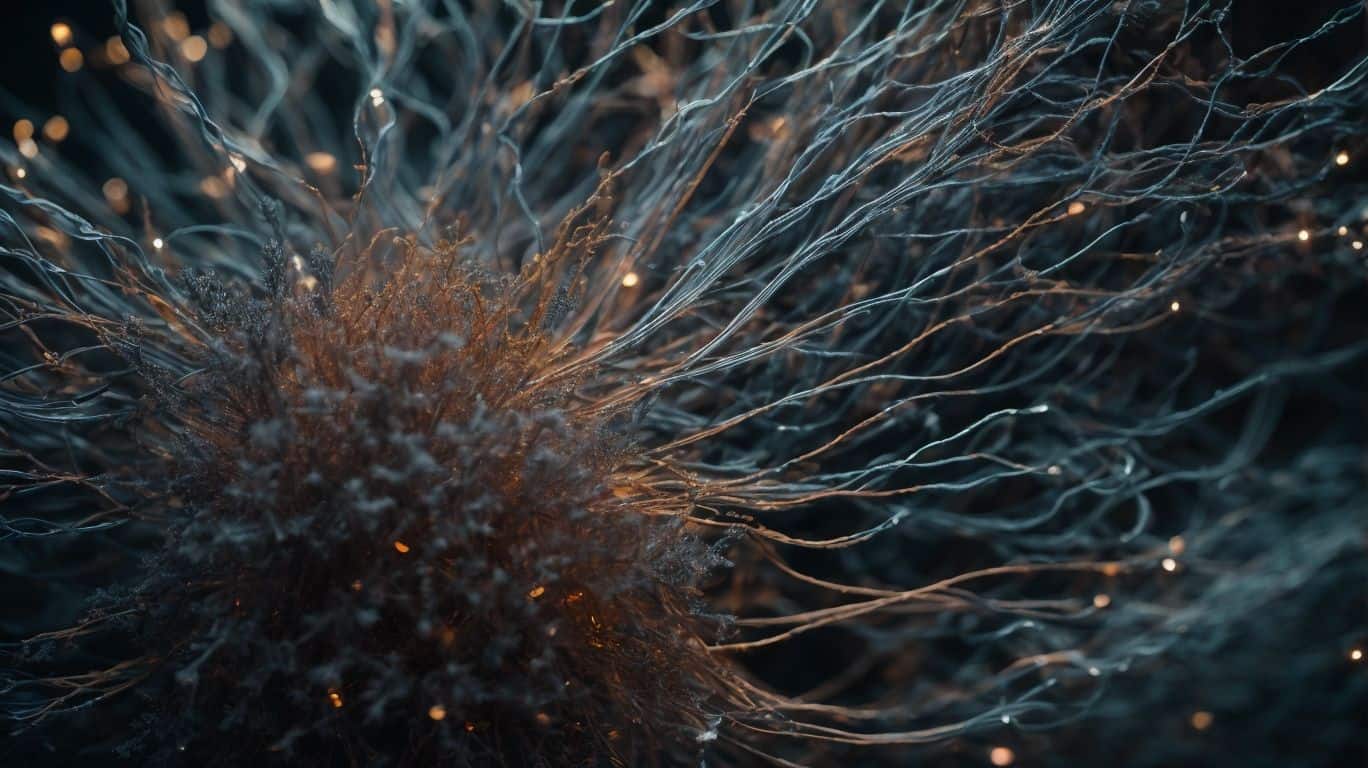How does heroin affect the brain? Heroin is a highly addictive and illegal opioid drug made from morphine, a natural substance taken from the seed pod of the opium poppy plant. It is classified as a Schedule I drug by the DEA, meaning it has a high potential for abuse and no currently accepted medical use in treatment.
Heroin is typically injected, smoked, or snorted, and its effects on the brain can be both immediate and long-term, leading to severe physical and psychological damage.
Upon entering the brain, heroin is converted back into morphine and binds to opioid receptors, increasing dopamine levels and producing feelings of pleasure and euphoria. However, these effects are short-lived, and the brain quickly becomes tolerant to heroin, leading to increased use to achieve the same level of pleasure. This can result in serious changes to brain structure and function, affecting cognition, decision-making, and emotional regulation.
The immediate effects of heroin on the brain can include a rush of intense pleasure, slowed breathing, and impaired cognitive function. Long-term use can lead to significant changes in brain chemistry, leading to physical dependence and addiction. It can also cause brain damage in the form of hypoxia, where the brain is deprived of oxygen due to slowed breathing and heart rate.
Signs and symptoms of heroin use include behavioral changes such as lying or secretive behavior, mood swings, and social withdrawal. Physical symptoms can include constricted pupils, sudden weight loss, and track marks from injection sites.
Treatment for heroin addiction typically involves a combination of medication-assisted treatment and behavioral therapy, with the goal of reducing cravings and preventing relapse.
To prevent heroin use, education and awareness about the dangers of this drug are crucial. Strategies for prevention include promoting healthy coping mechanisms, building resilience, and addressing underlying mental health issues. Additionally, implementing stricter laws and regulations around the manufacturing and distribution of heroin can help reduce its availability and accessibility.
Key Takeaways:
- Heroin is a highly addictive opioid that affects the brain’s reward and pleasure center.
- Immediate effects of heroin include a rush of euphoria and slowed breathing, while long-term use can lead to changes in brain structure and function.
- Treatment for heroin addiction often includes a combination of behavioral therapy, medication, and support groups.
What is Heroin?
Heroin is an opioid drug that is derived from morphine, which is a natural substance extracted from the seed pod of the Asian opium poppy plant.
How Does Heroin Affect the Brain?
- Heroin enters the brain and binds to opioid receptors, inducing a surge of dopamine, triggering a euphoric sensation.
- With continued use, the brain adapts to the drug, reducing dopamine production and receptor function.
- Over time, individuals develop a tolerance, requiring more heroin to achieve the same effect.
- Regular heroin use alters the brain’s white matter, impacting decision-making and behavior.
Fact: Chronic heroin use can lead to severe long-term changes in brain function, creating challenges in regulating behavior, making it difficult to resist the urge to use the drug.
What Are the Immediate Effects of Heroin on the Brain?
The immediate effects of heroin on the brain include a surge of pleasure, decreased pain perception, and drowsiness. This is due to the drug quickly crossing the blood-brain barrier and converting into morphine, which then binds to opioid receptors. Additionally, heroin can cause clouded mental function and impaired decision-making.
It is important to note that seeking professional help and support is crucial for individuals struggling with heroin addiction.
What Are the Long-Term Effects of Heroin on the Brain?
The long-term effects of heroin on the brain can be severe, resulting in the deterioration of white matter, reduced brain volume, and impaired decision-making abilities.
To combat these effects, it is important to seek professional help, participate in support groups, and engage in cognitive behavioral therapy to overcome heroin addiction and promote brain healing.
Can Heroin Cause Brain Damage?
Yes, heroin can cause brain damage by disrupting the brain’s white matter, which can affect decision-making, behavior, and stress regulation. Prolonged use of heroin can result in reduced white matter in the brain, which can impact cognitive function and emotional regulation. Seeking assistance through rehabilitation and therapy can help mitigate the impact of heroin on the brain and promote recovery.
What Are the Signs and Symptoms of Heroin Use?
Heroin use can be identified through a variety of signs and symptoms. These may include physical signs such as constricted pupils, decreased breathing, and sudden behavioral changes. Another indication of heroin consumption is the presence of paraphernalia like syringes, small spoons, or burnt foil. Emotional symptoms like euphoria, drowsiness, and disorientation may also be present in users. In addition, health problems such as weight loss, infections, or track marks at injection sites are common signs of heroin usage.
How Does Heroin Use Affect Behavior and Mood?
- Behavior: Heroin use can have a significant impact on behavior, often leading to feelings of euphoria, drowsiness, and clouded mental function. As a result, users may appear detached or apathetic.
- Mood: The effects of heroin use on mood can be severe, with users experiencing mood swings, hostility, depression, and anxiety. These changes can greatly impact personal and professional relationships.
What Are the Physical Symptoms of Heroin Use?
The physical symptoms of heroin use include:
- pinpoint pupils
- drowsiness
- slurred speech
- nodding off
- sudden changes in behavior or actions
In addition, weight loss, runny nose, and needle marks may be present. If you notice these symptoms in someone, it is important to seek medical help. It is also important to encourage access to support groups and rehabilitation programs for individuals struggling with heroin use.
How is Heroin Addiction Treated?
- Detoxification: The first step in treating heroin addiction involves cleansing the body of the drug and managing withdrawal symptoms.
- Medication-assisted treatment: One method of treatment is using medications such as methadone or buprenorphine to reduce cravings and alleviate withdrawal symptoms.
- Behavioral therapy: Counseling and therapy sessions are also important in addressing underlying issues and teaching coping strategies.
- Support groups: Peer support can be gained by participating in support groups like Narcotics Anonymous.
- Aftercare: Continuing therapy and support after treatment can help prevent relapse.
Fact: Research has shown that medication-assisted treatment can be effective in reducing heroin use and preventing overdose deaths.
What Are the Different Treatment Options for Heroin Addiction?
Treatment options for heroin addiction include:
- Medication-Assisted Treatment (MAT): This involves the use of medications such as methadone, buprenorphine, or naltrexone to manage withdrawal symptoms and cravings.
- Behavioral Therapies: Cognitive-behavioral therapy can help identify and modify behaviors and thought patterns that contribute to addiction. Contingency management provides incentives for maintaining sobriety.
- Support Groups: 12-step programs like Narcotics Anonymous offer peer support and a structured approach to recovery.
To effectively address heroin addiction, it is crucial to consider individual needs and preferences when selecting a treatment approach.
What Are the Steps Involved in Heroin Addiction Treatment?
- Assessment: Conduct a comprehensive evaluation of the individual’s physical and mental health, substance use history, and treatment goals for heroin addiction.
- Detoxification: Manage withdrawal symptoms in a safe, controlled environment, often using medications to alleviate discomfort.
- Therapy: Engage in individual and group counseling to address underlying issues, develop coping strategies, and prevent relapse during heroin addiction treatment.
- Medication-Assisted Treatment: Explore options such as methadone, buprenorphine, or naltrexone to manage cravings and support recovery from heroin addiction.
- Aftercare: Establish a plan for ongoing support, which may include therapy, support groups, or sober living arrangements after completing heroin addiction treatment.
For effective treatment of heroin addiction, it’s crucial to tailor the approach to the individual’s needs, offer ongoing support, and address any co-occurring mental health conditions.
How Can Heroin Use Be Prevented?
- Educate the community about the dangers of heroin use through informative programs and campaigns.
- Provide accessible counseling and support services for individuals at risk of heroin use.
- Implement strict regulations on the distribution and prescription of opioid painkillers.
Pro-tip: Encouraging open communication and offering non-judgmental support can be essential in preventing heroin use. Additionally, it is important to ask the question, “How Can Heroin Use Be Prevented?” and take proactive steps to address this issue in our communities.
What Are Some Strategies for Preventing Heroin Use?
In order to prevent heroin use, educating communities and young individuals about the potential risks is essential. This can be achieved by implementing evidence-based prevention programs in schools, providing access to mental health resources, and promoting healthy coping mechanisms. These strategies can deter drug experimentation and use among individuals.
Frequently Asked Questions
How does heroin affect the brain?
Heroin use has significant impacts on the brain’s physical structure, physiology, and function. Repeated use can cause long-term imbalances in hormonal systems and changes in the brain’s white matter, which can affect decision-making abilities, behavior regulation, and responses to stressful situations.
What specific receptors does heroin target in the brain?
Heroin binds to and activates mu opioid receptors (MORs) in the brain, which are responsible for regulating pain, hormone release, and feelings of well-being. When MORs are activated in the reward center of the brain, they stimulate the release of the neurotransmitter dopamine, reinforcing drug-taking behavior.
How does the route of administration affect the effects of heroin?
Different routes of administration, such as injection, smoking, or snorting, can result in varying effects of heroin. Injecting heroin directly into the bloodstream leads to a quicker and more intense high, while smoking or snorting may result in a slower onset of effects.
What are the long-term consequences of heroin use on the brain?
Long-term heroin use can result in changes to the brain’s structure and function, leading to impaired decision-making, memory, and emotional regulation. These changes are difficult to reverse and can have lasting impacts on an individual’s well-being.
How does heroin use lead to physical dependence and withdrawal symptoms?
Heroin use can result in physical dependence, meaning that more of the drug is needed to achieve the same effects and withdrawal symptoms occur if use is reduced. These symptoms can include restlessness, muscle and bone pain, insomnia, diarrhea, vomiting, cold flashes, goosebumps, leg movements, and can last for up to a week.
Can heroin use lead to a chronic relapsing disease?
Yes, repeated heroin use often leads to heroin use disorder, a chronic relapsing disease characterized by uncontrollable drug-seeking behavior. Once a person has heroin use disorder, their primary purpose in life becomes seeking and using the drug, leading to negative consequences and a constant cycle of drug use.

